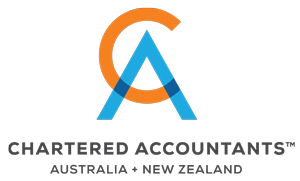Year-End Tips
The end of the 2023 financial year is almost here! Here's a few things you should consider.
Write off any bad debts
To claim a deduction for a bad debt in the 2023 tax year it must actually be written off before 31 March 2023. Take some time and review your Accounts Receivables list. Any that are not recoverable can be written off to reduce profit – you don’t want to pay tax on income that you will not be receiving. If you’re not sure how to do this, provide me with the debtor and invoice details, and I can do this for you.Complete an end of year stocktake
If your business has inventory, carry out a physical stocktake to ensure you have accurate stock values. Not doing so can lead to misreporting profits and tax penalties. Any obsolete or non-saleable stock can be written off to reduce taxable profit. So get your stocktake organised now for the end of the year.Claiming vehicle expenses
Are you claiming vehicle expenses where you need to apportion business/private use? Is your vehicle logbook up to date? Without a logbook determining your business/private use, you are restricted to a 25% claim for expenses which can make a big difference at year-end. The percentage of business and personal travel recorded in your logbook for 90 days will apply for up to three years (assuming there are no significant changes).Include all creditors
Make sure you record all your creditors (people you owe money to). Recording all your liabilities accurately on 31 March can help reduce your tax bill.Record Keeping - The Onus Is On You!
Keeping good financial records is very important for tax purposes. It is your responsibility to justify your deductions for expenditure if called upon by the IRD to do so. You must keep all relevant financial records for at least 7 years. If you are unsure what financial records you need to keep see the IRD requirements here.If you are using Xero we strongly recommend using Hubdoc to improve your record keeping. Hubdoc is a standard feature (no additional cost) on the Xero starter, standard, and premium plans that enables you to keep all your financial records electronically. You can find out more about Hubdoc here.
Reassess Your Provision Tax
Provisional tax for 2023 is generally based on your 2022 financial result. If you believe your 2023 results will be significantly different from the previous year please contact me as it may be beneficial to reassess your remaining 2023 provisional tax payments.
IRD Updates
Minimum wage & payroll
From 1 April 2023:The minimum wage increases from $21.20 per hour to $22.70 per hour, and the starting-out and training minimum wage will also increase from $16.96 to $18.16 per hour.
The ACC earner levy rate increases from 1.46% to 1.53%.
The student loan repayment threshold increases to $439 per week.
Interest deductibility on residential rental properties
The 2023 financial year is the second transitional year of the interest deductibility changes announced by the government back in March 2021.For residential property acquired before 27 March 2021 interest can only be partially claimed as follows:
1 April 2022 to 31 March 2023 – 75%
1 April 2023 to 31 March 2024 – 50%
For residential property acquired on or after 27 March 2021, interest cannot be claimed as an expense from 1 October 2021.
Prescribed Interest Rate (Applies to Overdrawn Shareholder Current Accounts)
The prescribed interest rate that is used to determine the fringe benefit value of low-interest loans provided to employees and must be charged on overdrawn shareholder current account balances increased from 4.78% to 6.71% (effective 1 January 2023).
An overdrawn shareholder's current account means that the shareholder owes money to the company.
We are here to help, if you have any questions please get in touch.





